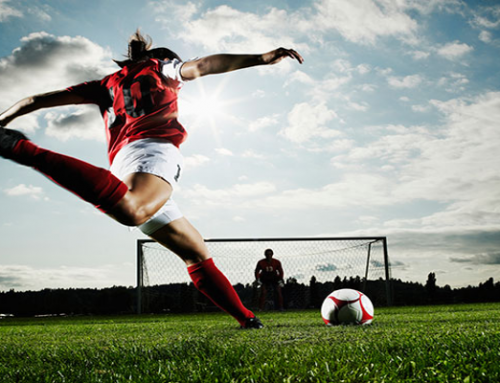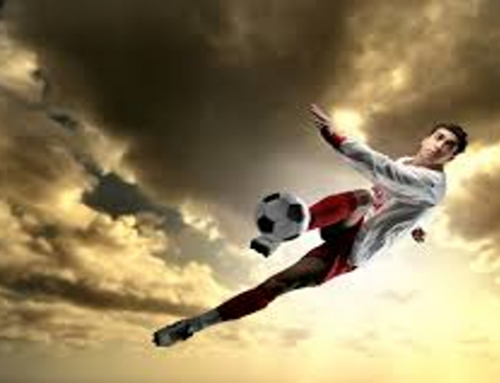This thought provoking article by Dennis Hörtin from Älvsjö AIK FF in Sweden (@DHrtin) covers several coaching areas including his opinion on the Relative Age Effect, the impact of winning on development and self-esteem. Dennis argues that soccer coaches need to become better psycho-social coaches.
I’d like to contribute with some of my opinions and experiences gathered as Head of Youth (boys) in a rather big grassroots club in the southern part of Stockholm, Sweden.
First off, I just want to say that the obstacles and/or opportunities my club have to deal with on a daily basis is of course influenced by the cultural and socio-economic circumstances we face. Other clubs in other parts of Stockholm or other parts of the world might face totally different challenges.
Our club is located in a middle/upper middle class suburban part of Stockholm, but also influenced by a couple of less priveliged areas.This mix provide great diversity to the club with kids from various cultures and economical backgrounds.
Our club is open for all to join, and coaching, training, planning, administration etc are mainly run by volunteer parents. Part of my job is to guide our coaches and administrators to run each group of players in line with the club’s philosophy and curriculum.
I don’t like the word curriculum though, since it’s so easy to couple with the traditional way of learning by rote. The programme we use is a holistic one with content in line with early diversification, late specialization, self-determination theory and a fun and game based approach.
In this blog entry, I’d like to put my finger on what diversity brings us – both the challenges and opportunities, the psychological and social aspects in our programme and also touch a bit on ability grouping, mindsets, pampering and values, and highlight some areas where tradition and/or the market conflicts with the way we want to do things.
Psycho-Social
My belief is that for our programme to be effective, whether we value elite sport participation or the contribution to our society in terms of healthier children and later on as adults, we need to balance the football specific content with the psychological and social aspects of a child’s development.
In a club like ours, and in Sweden in general in both school and sports, we batch kids chronologically. And when we group children like that, we’ll witness the obvious and perfectly natural differences in maturity among them. This causes conflict for some coaches and parents.
The obvious differences in ability related to the relative age effect (RAE), lead to a kind of dynamic environment where kids can learn to help and support eachother, work together as a group, learn to address issues, understand that we all have different abilities, strengths and weaknesses etc.
This is, in my opinion, very good for fostering future adults that can have a positive impact on our society later on, but I also think it’s a vital ability to possess as a pro footballer.
Winning – Losing
In line with a previous entry on the Dan Abrahams blog, from the PSV Eindhoven coach Mauro van de Looij, I think that kids want to win, and that is totally fine. It’s natural for them to try and win. It’s the nature of the game. Coaches should not talk about winning, kids do that perfectly on their own without the need for adults to prompt them to try to win. Coaches should focus on effort and development.
However, what happens psychologically when kids don’t win? Here I can see some conflict in a club like mine, compared to a Dutch pro club.
I don’t know how PSV does things, but we don’t use future/shadow teams, nor do we select what players to include in our programme. We don’t have well educated youth coaches in general either. Though, one thing I’ve learnt is that badges and experience doesn’t tell even close to the whole story.
Being a youth coach is a lot about values and maturity, something that volunteer parents possess, and that, if anything, is of great value to our club. This does question the phrase “well educated”. What is well educated? Is it a badge? Is it values? Is it perhaps a lot about soft skills that perhaps can’t be taught?
So again, “well educated” is perhaps refering to values, maturity and soft skills. If so, we have a great line up of well educated volunteer coaches in Älvsjö AIK FF that are there for the kids, not for themselves.”
So what happens in our club when a team lose a game when abilities are widely spread in a team related to RAE?
Maybe the stronger players look at the weaker peers and “blame” them? In many cases, this is exactly what happens in our club. But hey, they are kids! It’s ok!
But the question is how do we handle this as coaches and/or parents? In these cases, perhaps we should embrace the struggle, not remove it? To me, struggle is learning.
Struggle is Learning….
These conflicts, or opportunities, depending on how you look at it, will force out opinions from some coaches and/or some parents that want to create smaller groups sorted by ability, with the argument that some kids development are held back because of the children with less ability.
I don’t believe in such statements when presented as the one and only “solution” to the “problem” as if the world was that one-dimensional. A statement like that also totally ignores the psycho-social aspects of a child’s development as if football is learnt or experienced in some kind of vacuum where other things than just football can’t fit.
I do however think that ability grouping is a tool to use at times to accelerate learning, but it must be balanced psycho-socially. A small gain in the football specific area can have huge costs on the other hand, and it is far too expensive not to handle this with care, no matter what a club’s ultimate goal might be. Because it will fall short in both ends if not dealt with care and awareness.
I totally understand that winning with less effort in a selected group of players will give a short-term positive boost for the selected kids, but will it serve them in the long run? Will they develop the type of mindset needed to really excel later in life?
And should we as a club that, according to the government (that also support clubs financially to some extent), follow the UN Child Convention look at the long-term goal over the short term if they are in conflict? I believe so.
And on the other hand, how do the kids who suddenly aren’t allowed to play with their friends feel about ability grouping? What kind of psychological and social issues will they face?
I know from experience, that some kids that are selected for the best/elite group tend to brag in school about their confirmed ability, with huge costs psychologically and socially for the kids who today aren’t at the same level due to being born later in the selection year. Many young players who don’t perceive themselves as good enough drop out. That is how powerful the psycho-social aspect of coaching is. And a drop participation numbers will also limit elite sport participation rates as well!
Parents and Self-Esteem
Parents can also be eager to help their kids develop a positive self-esteem. I totally understand this, and parents definitely should do that.
But self-esteem can also get too positive. If too positive, players tend to walk in to the land of pampering and fixed mindsets. In other words, perhaps ability grouping can have a negative psychological impact long-term, but also socially, and finally limit learning, if not handled with caution?
To me, when it comes to self-esteem and long-term goals, “us” is the new “me”.
Youth Sport and Society
I think these issues I’m addressing here today are the outcome of two main challenges within youth sport and society.
1. Focus is solely on football, as if football development occurred in a psycho-social vacuum.
2. Our society is very individualized – close to narcissistic – and we tend to try and find what we think is a shortcut to success.
I’m a firm believer that by balancing the psycho-social aspects with the football specific ones in our education programmes, we’ll get more kids that are involved longer in sports and we will make a more positive impact on both health and elite-level goals.
Football is also a tool for teaching values. And at times like now, with what’s going on in the world, we sure need more of it.
I think that looking at the future, and what society really needs much more of, we should look at what values we send to our children, and I believe that a future without altruistic values and full to the brim with egocentric people, football will not survive as we know it, nor will we.
Dennis Hörtin is Head of youth (boys) at Älvsjö AIK FF in Stockholm, Sweden




